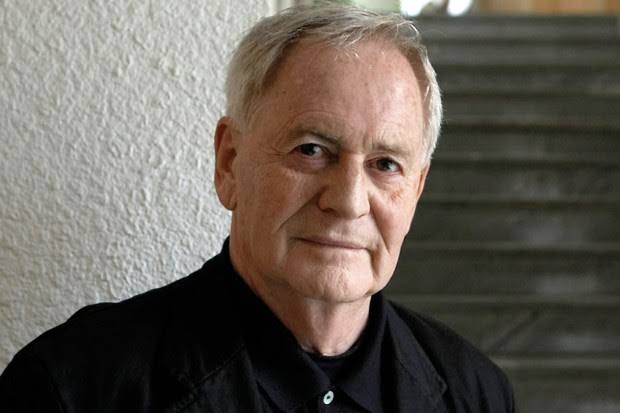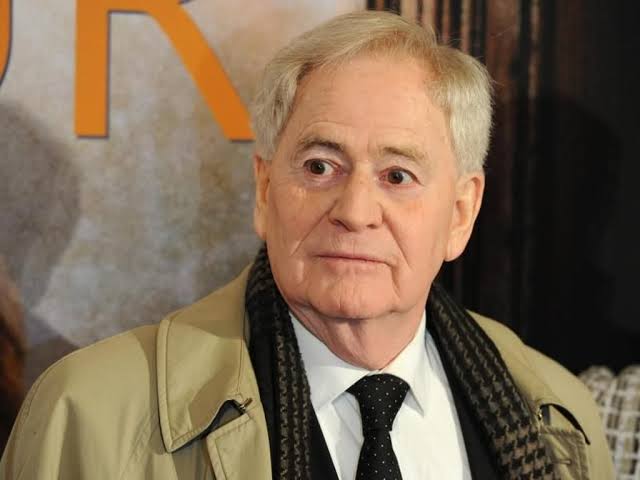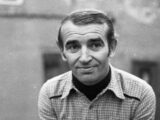
István Szabó Biography: Movies, Awards, Net Worth, Nationality, Ethnicity, Wife, Parents, Age, Wikipedia
István Szabó is a renowned Hungarian film director, screenwriter, and opera director, widely recognized as one of Hungary’s most prominent filmmakers, particularly on the international stage since the late 1960s.
He began his filmmaking journey with a short film in 1959 while studying at the Academy of Drama and Film in Budapest.
Trending Now!!:
His debut feature film followed in 1964. Szabó achieved global acclaim with Mephisto (1981), which earned him the Academy Award for Best Foreign Language Film.
Many of his subsequent works have been international co-productions, showcasing a diverse range of languages and European settings.

Profile
- Full Name: István Szabó
- Stage Name: István Szabó
- Born: 18 February 1938
- Age: 86 years old
- Birthplace: Budapest, Hungary
- Nationality: Hungarian
- Occupation: Hungarian film director, screenwriter, and opera director
- Height: Unknown
- Parent: Mária (née Vita) and István Szabó
- Siblings: Unknown
- Spouse: Vera Gyürey (m. 1961)
- Children: Unknown
- Relationship: Married
- Net Worth: Unknown
Early Life And Education
István Szabó was born on February 18, 1938, in Budapest, Hungary, to Mária (née Vita) and István Szabó, a doctor from a family with a long medical tradition. It is unknown whether he has any siblings, as their identities are not publicly documented.
He attended the Academy of Drama and Film in Budapest, where he received foundational training that launched his successful career in filmmaking.
Szabó is of Hungarian ethnicity. In a 2001 interview, he expressed a belief in God, although specific details about his religious practices or affiliation remain unknown.
Career
István Szabó began his career in the early 1960s and emerged as one of Hungary’s most significant filmmakers during the country’s “new wave” cinema era. Initially aspiring to be a doctor like his father, Szabó shifted his focus to filmmaking at 16 after being inspired by Hungarian film theorist Béla Balázs. Admitted to the Academy of Drama and Film in Budapest, he studied under Félix Máriássy and collaborated with classmates who also became notable directors.
Szabó’s first feature, The Age of Illusions (1964), explored themes of generational struggles and marked the start of his autobiographical storytelling, featuring actor András Bálint in a recurring role based on Szabó himself.
His next films, such as Father (1966) and Lovefilm (1970), delved into personal and historical narratives, utilizing experimental techniques influenced by the French New Wave. Father was later recognized as one of Hungary’s top films.
In the 1980s, Szabó achieved international acclaim with his “Brandauer trilogy,” comprising Mephisto (1981), Colonel Redl (1985), and Hanussen (1988), all starring Klaus Maria Brandauer. Mephisto earned Szabó an Academy Award for Best Foreign Language Film in 1982. These films, set against historical backdrops, explored moral conflicts and the compromises made under authoritarian regimes.
During the 1990s, Szabó transitioned to international co-productions, including English-language films such as Meeting Venus (1991) and Sweet Emma, Dear Böbe (1992), which addressed contemporary social issues.
Taking Sides (2001) revisited themes of moral ambiguity, earning accolades for its portrayal of Wilhelm Furtwängler’s interrogation. Szabó’s Being Julia (2004) received critical praise, with Annette Bening winning a Golden Globe for her performance.
Szabó returned to Hungarian cinema with Rokonok (2006), based on a classic novel about political corruption. His later works, including The Door (2012), adapted from Magda Szabó’s novel, continued to explore complex human relationships and received international recognition.
Beyond filmmaking, Szabó has directed operas in cities like Paris, Vienna, and Budapest and taught at prestigious film schools across Europe. His early films, blending experimental narratives with psychological depth, reflect his commitment to exploring human emotions and societal challenges.
Szabó has also directed several operas, including Tannhäuser in Paris, Boris Godunov in Leipzig, Il Trovatore in Vienna, and Three Sisters in Budapest. He has taught at film schools in Budapest, London, Berlin, and Vienna.
Szabó’s enduring legacy includes his frequent collaborations with actors like Klaus Maria Brandauer and András Bálint, cinematographer Lajos Koltai, and screenwriters such as Péter Dobai. His contributions to cinema have earned him a prominent place in Hungarian and global film history.
Awards and Nominations
István Szabó has received numerous awards and nominations throughout his career.
- Academy Awards:
Won: Best Foreign Language Film for Mephisto (1982) - Cannes Film Festival:
Won: Best Screenplay for Mephisto (1981)
Won: Jury Prize for Colonel Redl (1985) - BAFTA Awards:
Won: Best Film Not in the English Language for Mephisto (1982) - European Film Awards:
Won: European Screenwriter of the Year for Dear Emma, Sweet Böbe (1992)
Won: European Screenwriter for Sunshine (1999) - Golden Globe Awards:
Nominated for Best Director for Sunshine (2001) and Best Foreign Language Film for Hanussen (1989) and Colonel Redl (1986) - Berlin International Film Festival:
Silver Berlin Bear for Best Director for Confidence (1980)
Social Media
Instagram handle: @szaboistvan0423
Personal Life
István Szabó, the acclaimed Hungarian film director, has been married to Vera Gyürey since 1961, marking over 60 years of marriage. Their enduring relationship has been a cornerstone of his life throughout his celebrated filmmaking career. It is unclear if both couples have any children, but details about them are unknown.
Filmography
- Directed Films:
- A Hetedik napon (The Seventh Day) (1959)
- Bill Poster (1960)
- Variációk egy témára (Variations on a Theme) (1961)
- You (1963)
- Koncert (Concert) (1963)
- Traffic-Rule Tale for Children (1965)
- Age of Illusions (1965)
- Piety (1967)
- Lovefilm (1970)
- Budapest, Why I Love It (collection of short films) (1971)
- 25 Fireman Street (1973)
- Várostérkép (City Map) (1977)
- Budapest Tales (1977)
- Places on Sunday (1978)
- Confidence (1980)
- The Green Bird (1980)
- Mephisto (1981)
- Colonel Redl (1985)
- Hanussen (1988)
- Meeting Venus (1991)
- Sweet Emma, Dear Böbe (1991)
- Sunshine (1999)
- Taking Sides (2001)
- Ten Minutes Older: The Cello (segment: “Ten Minutes After”) (2002)
- Being Julia (2004)
- Rokonok (Relatives) (2006)
- The Door (2012)
- Final Report (2020)
- Acting Roles:
- Father (voice of film director) (1966)
- The Hungarians (Abris Kondor) (1978)
- Bálint Fábián Meets God (András) (1980)
- Mephisto (Theatre party attendant) (1981)
- Colonel Redl (Officer at auction) (1985)
- Hanussen (Minor role) (1988)
- Túsztörténet (Fõorvos) (1989)
- Utrius (Orvos) (1994)
- Franciska vasárnapjai (Orvos) (1997)
- Place Vendôme (Charlie Rosen) (1998)
- Taking Sides (Passenger on train) (2001)
- Shem (Apparition in Cemetery) (2004)
- Rokonok (Bankigazgató-helyettes, voice) (2006)
- I Served the King of England (Stock marketeer) (2006)
Net Worth
István Szabó’s net worth remains undisclosed, as he has not shared any information about his financial status.
As a distinguished Hungarian film director, best known for acclaimed works such as Mephisto (1981), which earned him an Academy Award, Szabó has achieved significant recognition in the film industry. However, specific details about his wealth are not available in publicly accessible sources.
NOTICE!! NOTICE!! NOTICE!!
DISCLAIMER!! : Every Biography and Content Published On TheCityCeleb are For Knowledge Reason. Don't Hesitate to Reach Out for Any Correction || Suggestion || Copyright!!CORRECT@thecityceleb.com


